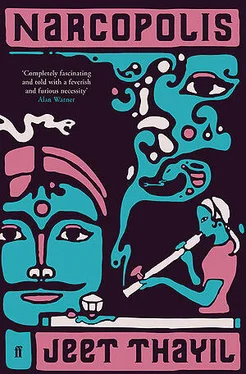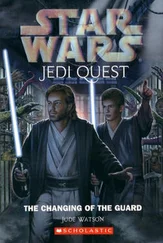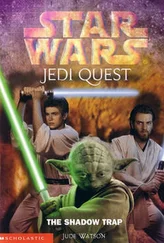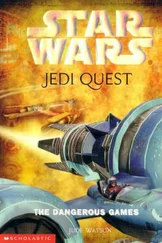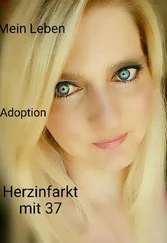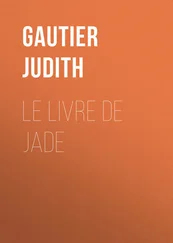*
When Dimple left, Salim shut the watch shop and went to give his boss the day’s accounts. The Lala’s house was in an alley among a maze of alleys off the main road and it was guarded by young men armed with country revolvers. Salim was thinking about freedom and fear. The city was burning; maybe Dimple was right, maybe it was the end of the world, which meant there was nothing to be afraid of. Nothing mattered. He thought about Dimple and was overcome once more by a wave of affection and melancholy. When he got to the Lala’s room, his boss was in a meeting with other bosses, the men sitting around in their Pathan suits and drinking whisky and tea. He placed the bag of money next to the Lala’s chair and waited until the older man had the bag put away. The Lala was telling his friends about Chemical, telling them it was so strong that his guinea pig, the German junkie Eckhardt, had died while sampling it. The men laughed. The pig deserved it, someone said. He wanted to die, said the Lala, also laughing. Salim had known Eckhardt and liked him. He was always surprised by the German’s fixing technique: he poked the needle into his thigh, right through his jeans, and he used the same needle for as long as he could. The German seemed to like it that people were horrified, even other junkies, though they all watched and they all asked why he did it. His reply was always the same: Come on, isn’t it obvious? Because I cannot find a fucking vein. Eckhardt had a marijuana leaf tattooed on his calf and one day he sliced it off with a barber’s razor because, he said, the tattoo was a Satanic symbol placed there by God to torment him, Eckhardt. The German may have been crazy but to Salim he was always courteous and he was sorry to hear the man was dead. He went back to the watch shop and made himself a smoke, chasing a long line of Chemical on a clean piece of foil. He lit a Four Square and chased the heroin with a hit of tobacco. He was thinking of locking up for the day when the Lala walked into the back office and, without a word, bent Salim over the desk and pulled down his pyjamas. There’s coconut oil on the desk, Salim said. In response, the Lala rammed harder and Salim felt something tear in his ass. The Lala’s hands were on his neck, pressing him down, giant hands that made it hard for Salim to breathe. Then he saw his pocket-maar knife on the desk, a few inches away. He opened it and reached behind him and sliced off the Lala’s dick with two or three quick saws of the blade. At first there was no blood, just shreds of red and white meat, and then a fountain spilled to the floor. The Lala stared at the stump of his penis for a moment before he began to bellow. Salim stabbed the knife into the big man’s neck but nothing happened, the Lala continued to scream. It was only when Salim picked up the strongbox and smashed it on his head that the gangster shut his mouth. Salim smashed until the Lala’s head was pulp. Then he dragged the body into the alley behind the shop. He cleaned the office floor, locked up and went home.
*
It was the terrible January of 1993; the Lala’s body was one of many lying unattended on the streets of the city. Salim knew it was common knowledge, what had happened to the Lala, because he, Salim, was seen walking away from the shop in bloodstained clothes. He expected a visit from the police but it never came. Four months later, after the city had returned to some normalcy, he was arrested for a robbery he knew nothing about. During the interrogation, which lasted a day and a half, Salim confessed to the murder of the Lala and the contract killing of a movie producer. Then he committed suicide by hanging himself with his belt, all this according to the police report. Though his corpse bore bruises that did not appear to be self-inflicted, he had no family and the body went unclaimed. The policemen who conducted the interrogation were friends and business partners of the Lala. After the interrogation, they didn’t bother to conceal their marked fists and shoes, and later that night, at Topaz, a beer bar frequented by cops, many glasses were raised to the Lala and to the brave men who avenged him.
*
On Christmas Day, Dimple had gone back to the church. There was a small crowd, poor people from the neighbourhood looking for somewhere to rest without having to worry about being attacked. They looked exhausted. Dimple wanted to pray, but the only prayer she knew was for Mother Mary, which she repeated though it didn’t seem like the right thing to do. On her way home, past empty rubbled streets, she spotted a loose group of men. For some reason they were all on one side of the road, as if there was a line they would not cross. She stopped only when a man stepped in her way, a drunk with a bandanna worn low on his eyes. He was chewing paan and he had a slight smile on his lips. His eyes were so bloodshot she wondered if he had conjunctivitis. He said one word. ‘Naam?’ It was a signal for the others to gather around her, to examine her the way they would a rare bird, a bird with human hands and a woman’s breasts. ‘Dimple,’ she said, looking the drunk man in the eyes. ‘Christian?’ he said. Without hesitating she said, ‘Yes.’ The man spat a stream of juice at her feet and a few red drops hit her sandals. ‘Nikaal,’ he told her with a jerk of his head, and she hurried on. She thought: If I’d been wearing a burkha they would not have spared me, the dress saved my life. But before she reached the corner of Shuklaji Street she heard a shout and stopped and felt the hair on her arms stiffen. They’ve changed their minds, she thought. But they were shouting at a boy on a bicycle. It was Jamal; she understood then that he’d been following her and had been following her for a long time. One of the men took hold of the bicycle and another grabbed him by his kurta. She couldn’t hear what they were saying, but she saw the look on the boy’s face and she saw that he was trying to pull himself free. Then she heard herself shouting. She was only a foot or two away from the safety of Shuklaji Street but she might as well have been in another country. She shouted: ‘Stop!’ The men looked in her direction. Jamal pointed at her and said something, something decisive, because they let him go. He ran straight to her. ‘Don’t run,’ she told him, ‘whatever you do, don’t run.’ She took his hand and walked slowly towards home.
What had he said to the men? Jamal wouldn’t tell her. But from then on he always greeted her when they met on the street or the staircase, which to her was a great thing, an achievement, something, finally, to be proud of.
It was around this time, while the city killed itself and the smell of charred flesh hung in the air, that Rumi told her he’d killed someone, or almost killed someone. He had had to drop his uncle to the airport and on the way, in Bandra East, he was stopped for running a red light, he said. It was the first time he’d been stopped in years. The cop asked for his driver’s licence and of course he wasn’t carrying it, that day of all days he’d left it at home. Instead of objecting or arguing, he simply handed over a note and thanked the man in Marathi. It was like paying a fine. His uncle stayed silent through this. But when Rumi started the car, Angre went into a tirade. He said, Paying a bribe is the worst thing an Indian can do. You are perpetuating a system of negativity by condoning a corrupt model that has brought this country to its knees. His uncle was the CEO of the business, a veteran public speaker, who could bullshit for hours into a microphone in front of a roomful of people. He was skilled at this kind of thing. He said, Your generation is reaping the rewards that your elders sweated and sacrificed for. I was a young man during the freedom struggle and I know the sacrifices my parents made, I know how simply and frugally we lived. Above all we believed in truth and I am deeply saddened to see the way you took those notes out of your pocket and gave them to that man, as if you were buying a ticket to the cinema. For the rest of the ride, a good forty minutes, there was silence in the car. At the airport, his uncle took his case and walked away without saying thank you or goodbye. There would be hell to pay. His father, who was the poor relative in the business, would go on about how Rumi had jeopardized the family’s future by bribing a cop in his uncle’s presence. Here Rumi paused for a moment and asked a number of questions that were not addressed solely to Dimple. And what about his own future? He was on the rebound. His marriage was over. Leaving his wife meant leaving her family business. Which meant going back to his father’s company, where he was given plum assignments such as driving his uncle to the fucking airport. Only a question of time before the shit hit. What would happen to him? He’d be fired, of course. And then? Where would he go? What would he do for money?
Читать дальше
